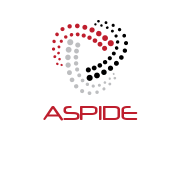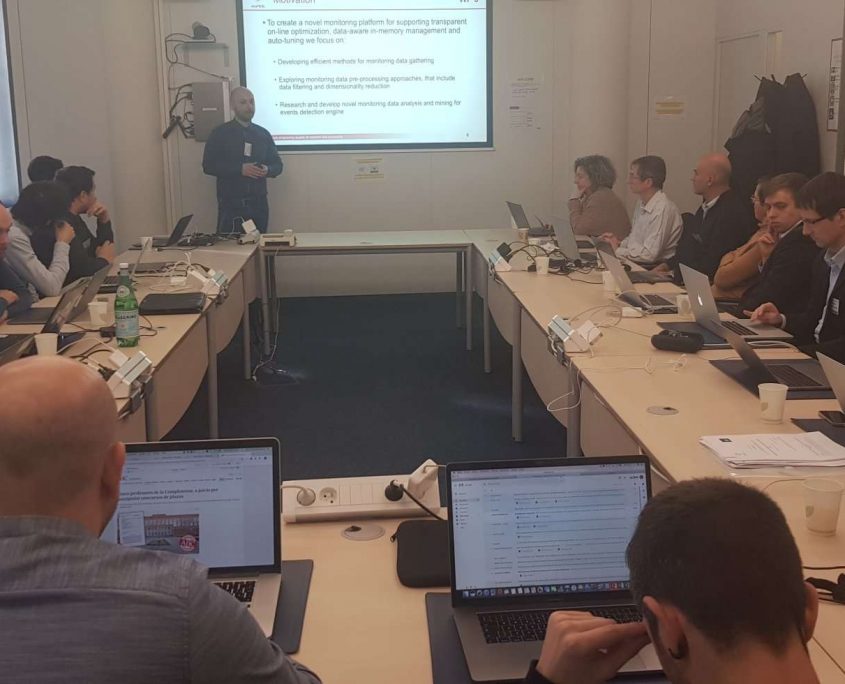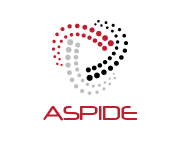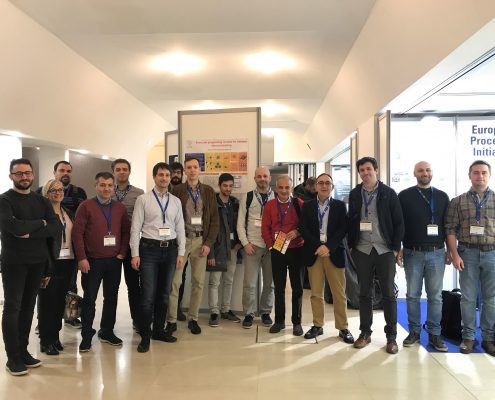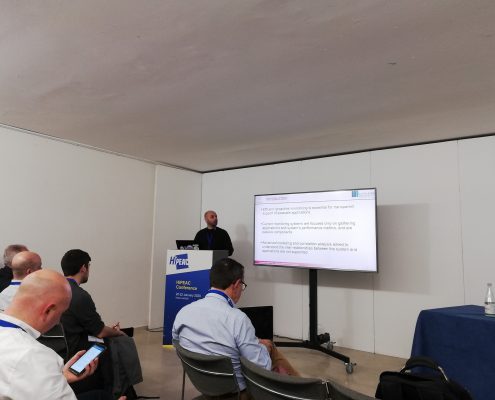The first review of the ASPIDE project took place on 25.02.2020 in the premises of the European Commission in Luxemburg. During the project review, a live demo of the platform for supporting extreme scale applications was presented and future research and developing activities were discussed with the reviewers.
Distributed and Parallel Systems
We are #ARTICONF, we are people. We are federating trust.
Here is a photo of us today after our periodic review in Brussels. Thank you Peter Friess, @FraukeBehrendt, @joaomagalhaes, @gravesen for your feedback on our project of #decentralised #socialmedia ⛓️ pic.twitter.com/4ovzPJbHBj
— ARTICONF (@articonf) February 20, 2020
Interview with @RaduProdanAAU at #ESMH The days when people work together in an office, are over…
In the future, ‘teams’ will be social networks… able to connect to other federated networks of clouds and at the same time establish privacy and trust. https://t.co/GwaVaQTFFJ— ARTICONF (@articonf) January 30, 2020
The ITEC team participated in the HiPeac 2020 International Workshop on Exascale programing models for extreme data with a presentation with title “Monitoring data collection and mining for Exascale systems”. The ITEC team also attended the collocated ASPIDE meeting and actively participated in the decision of the next research activities in the project.
Title of the talk: Mobility-Aware Scheduling of Extreme Data Workflows across the Computing Continuum
Abstract: The appearance of the Fog/Edge computing paradigm, as an emanation of the computing continuum closer to the edge of the network, unravels important opportunities for execution of complex business and scientific workflows near the data sources. The main characteristics of these workflows are (i) their distributed nature, (ii) the vast amount of data (in the order of petabytes) they generate and (iii) the strict latency requirements. Current workflow management approaches rely exclusively on the Cloud Data Centers, which due to their geographical distance in relation to the data sources, could negatively influence the latency and cause violation of workflow requirements. It is therefore essential to research novel concepts for partial offloading of complex workflows closer to where the data is generated, thus reducing the communication latency and the need for frequent data transfers.
In this talk we will explore the potential of the computing continuum for scheduling and partial offloading of complex workflows with strict response time requirements and expose the resource provisioning challenges related to the heterogeneity and mobility of the Fog/Edge environment. Consequently, we will discuss a novel mobility-aware Pareto-based approach for task offloading across the continuum, which considers three optimization objectives, namely response time, reliability, and financial cost. Besides, the approach introduces a Markov model to perform a single-step predictive analysis on the mobility of the Fog/Edge devices, thus constraining the task offloading optimization problem to devices that do not frequently move (roam) within the computing continuum. As a conclusion to the talk, we will discuss the efficiency of the presented approach, based on both a simulated and a real-world testbed environment tailored for a set real-world biomedical, meteorological and astronomy workflows.
The manuscript “Simplified Workflow Simulation on Clouds based on Computation and Communication Noisiness” has been accepted for
publication in the IEEE Transactions on Parallel and Distributed Systems journal (TPDS) with an impact factor of 4.181.
Authors: Roland Mathá, Sasko Ristov, Thomas Fahringer, Radu Prodan.
Abstract: Many researchers rely on simulations to analyze and validate their researched methods on Cloud infrastructures. However, determining relevant simulation parameters and correctly instantiating them to match the real Cloud performance is a difficult and costly operation, as minor configuration changes can easily generate an unreliable inaccurate simulation result. Using legacy values experimentally determined by other researchers can reduce the configuration costs, but is still inaccurate as the underlying public Clouds and the number of active tenants are highly different and dynamic in time. To overcome these deficiencies, we propose a novel model that simulates the dynamic Cloud performance by introducing noise in the computation and communication tasks, determined by a small set of runtime execution data. Although the estimating method is apparently costly, a comprehensive sensitivity analysis shows that the configuration parameters determined for a certain simulation setup can be used for other simulations too, thereby reducing the tuning cost by up to 82.46%, while declining the simulation accuracy by only 1.98% in average. Extensive evaluation also shows that our novel model outperforms other state-of-the-art dynamic Cloud simulation models, leading up to 22% lower makespan inaccuracy.
Acknowledgments: This work has been supported by the ASPIDE Project funded by the European Union’s Horizon 2020 Research and Innovation Programme under grant agreement No 801091.
The manuscript “Multi-objective scheduling of extreme data scientific workflows in Fog” has been accepted for publication in the “Future Generation Computer Systems” journal published by Elsevier. The journal is ranked in the Q1 (SJR) in the areas of “Hardware and Architectures” and “Computer Networks and Communications” with an Impact Factor of 5.768 (Journal Citations Reports). The manuscript was prepared in collaboration with the Technical University of Vienna.
Authors: Vincenzo De Maio and Dragi Kimovski
Abstract: The concept of “extreme data” is a recent re-incarnation of the “big data” problem, which is distinguished by the massive amounts of information that must be analyzed with strict time requirements. In the past decade, the Cloud data centers have been envisioned as the essential computing architectures for enabling extreme data workflows. However, the Cloud data centers are often geographically distributed. Such geographical distribution increases offloading latency, making it unsuitable for processing of workflows with strict latency requirements, as the data transfer times could be very high. Fog computing emerged as a promising solution to this issue, as it allows partial workflow processing in lower-network layers. Performing data processing on the Fog significantly reduces data transfer latency, allowing to meet the workflows’ strict latency requirements. However, the Fog layer is highly heterogeneous and loosely connected, which affects reliability and response time of task offloading. In this work, we investigate the potential of Fog for scheduling of extreme data workflows with strict response time requirements. Moreover, we propose a novel Pareto-based approach for task offloading in Fog, called Multi-objective Workflow Offloading (MOWO). MOWO considers three optimization objectives, namely response time, reliability, and financial cost. We evaluate MOWO workflow scheduler on a set of real-world biomedical, meteorological and astronomy workflows representing examples of extreme data application with strict latency requirements.
Acknowledgments: ASPIDE H2020 and ATOMICFOG ÖAD AT/MK 2018
The PhD defense is in progress. @ilyushkin of @LargeResearch and @EEMCS_TUD discusses his work with @RaduProdanAAU. Science at work. pic.twitter.com/ubSZoXRYCR
— Alexandru Iosup (@AIosup) December 19, 2019

